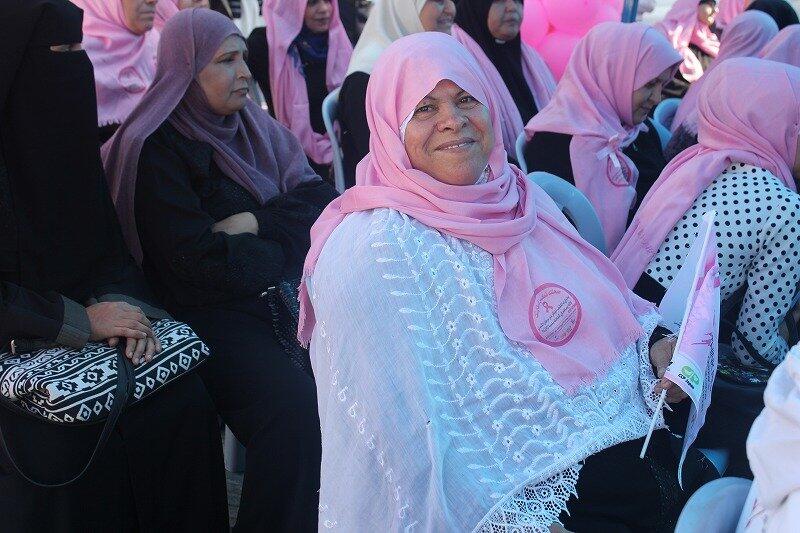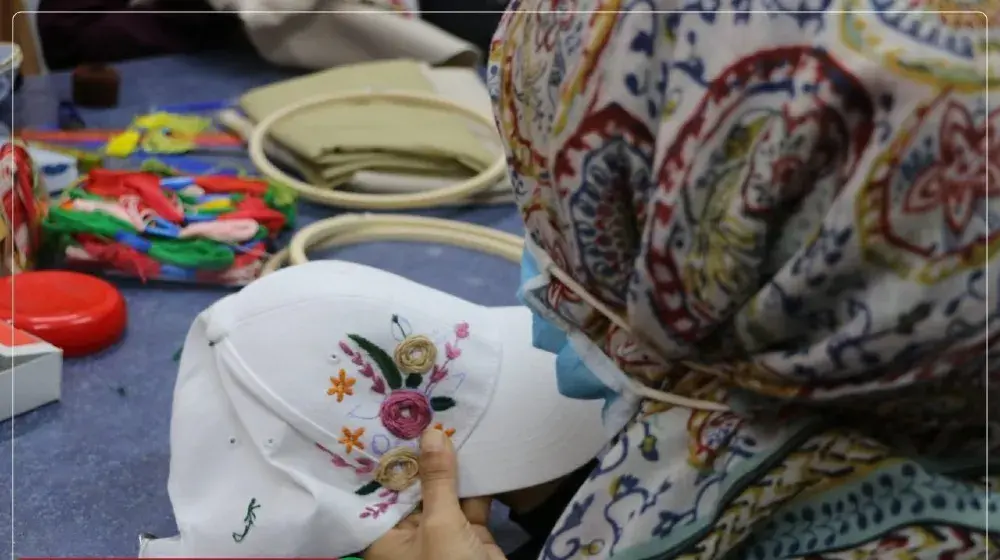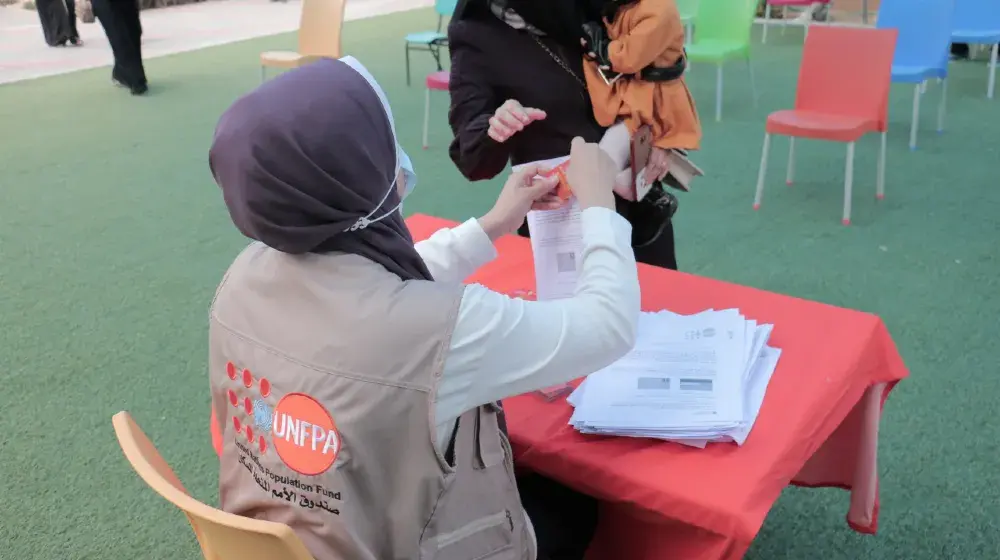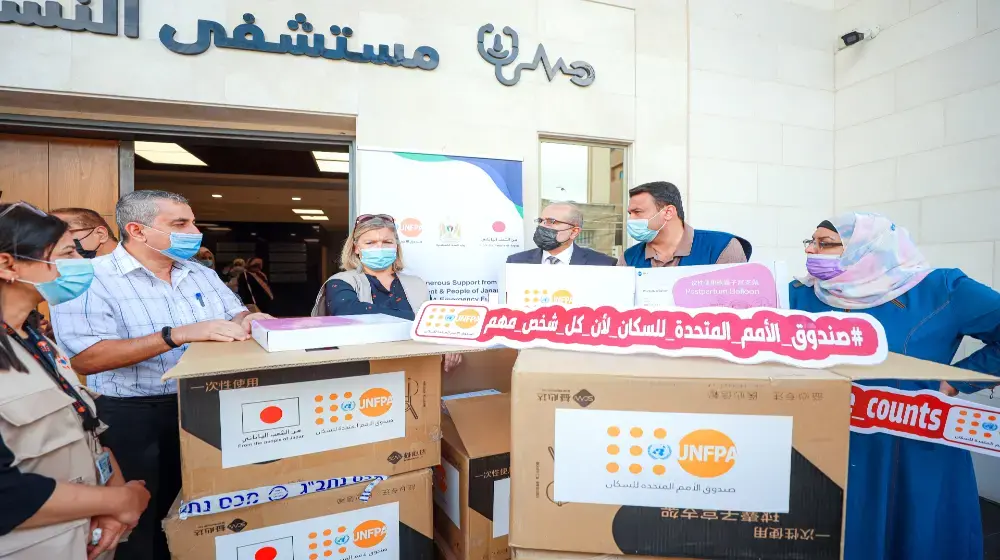“I always encourage the women I know to do a self-examination and regular screenings”, says Intisar, a 55-year-old woman from Deir al-Balah in the Gaza-strip.
The prevalence of breast cancer has been increasing in Palestine over the past years. It is the most prevalent cancer among Palestinian women, comprising 29% of cancer diagnoses in the West Bank and 20% of those in the Gaza-Strip.
Although breast cancer is one of the cancers with the highest survival rate, success depends on early detection. Unfortunately, more than 60% of breast cancer cases in Palestine are detected at a late stage, hence reducing treatment options and the chance of survival.
For Intisar, the time after her diagnosis was difficult. She felt helpless and depressed, and the stigma around breast cancer in Gaza led her to feel isolated and rejected by her local community. Intisar is not alone in this; a recent UNFPA study showed that breast cancer stigma is very prevalent, and may lead to later detection.
After her chemotherapy treatment at Al-Rantisi Hospital in Gaza, Intisar was put in touch with the Culture and Free Thought Association (CFTA) (a non-governmental organisation in Gaza that provides cultural, educational, and healthcare services). She described CFTA as “the best organisation with the biggest heart”, and explains how she formed great friendships there “I met women who became my real friends.”
Through a dedicated project on breast cancer, supported by UNFPA, implemented by the Ministry of Health, Campaign for the Children of Palestine (CCP) and its partner CFTA, and the Palestinian Medical Relief Society (PMRS), and funded by the Government of Japan since 2016. Intisar benefited from many awareness sessions on physical and mental health. Over the years, she was provided with a wig, breast prosthesis, dignity kits with hygiene products, hormonal therapy, vitamins, medication, and financial aid. CCP/CFTA organise various leisure activities for women support groups, including sports events and trips. These activities and the psychosocial services provided at CCP/CFTA helped Intisar overcome her depression.
According to Firyal Thabet, the director of the Women Health Centre at CFTA “the aim is to increase awareness on the importance of early diagnosis for breast cancer for both women and men. We do this by online campaigns, radio coverage, and by involving mosques, hair salons, and taxi companies. Now we see more and more women and men coming to our centre for screening”.
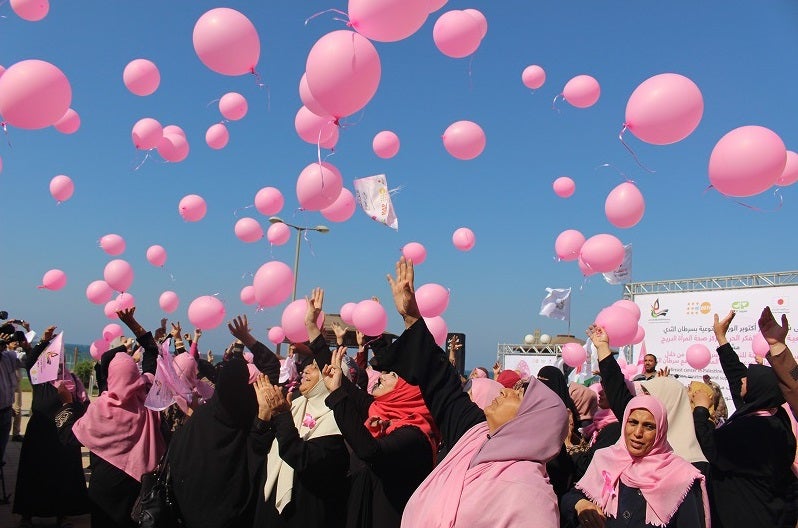
CCP/CFTA later helped Intisar access a mastectomy operation (where the whole breast is removed to prevent future spread) and physiotherapy sessions. When she needed radiotherapy at Augusta Victoria Hospital (AVH) in East Jerusalem, because no such service is available in Gaza, CCP/CFTA supported her. Intisar (being from the Gaza Strip) was required a permit to enter Jerusalem. Her permit application was rejected five times before she was finally granted one. In 2018, almost 40% of Israeli permit applications for patients to exit the Gaza Strip to the West Bank or Jerusalem for treatment were rejected or delayed. About a quarter of these applications were for cancer care.
Today, Intisar is a leading advocate for early detection and a peer supporter at the centre and in her community. She encourages women to do regular self-examinations and screenings. She is determined to reassure diagnosed women through home visits and words of support “I tell them that you will become better than before, breast cancer is a start of a new life and not the end of your life, do not give up and have faith.
Her journey to recovery is not yet over. Intisar was re-diagnosed with cancer in November 2019. A small tumour was found on her lungs, and she is retaking chemotherapy treatment. She says “I am hopeful that I will recover again with the help of God and those around me”.
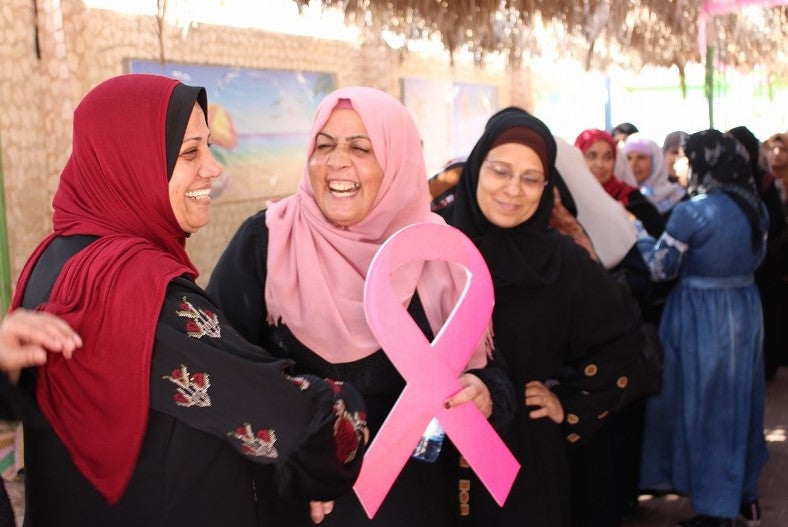
With generous support from the Government of Japan, UNFPA supports a breast cancer screening mobile clinic run by AVH and the Palestinian Medical Relief Agency (PMRS), which visits marginalised communities in the West Bank. In addition to awareness-raising and community campaigns by PMRS in the West Bank and Gaza Strip. With CCP/CFTA and other NGOs, UNFPA coordinates a breast cancer working group, supports capacity building activities at the Ministry of Health, and jointly with WHO supported the first mammogram clinic at the primary health care level in Gaza in 2017.
Japan is committed to reconstructing Gaza and alleviating the deteriorating socio-economic conditions for the people in Gaza. Therefore, Japan is pleased to have supported this clinic aimed at strengthening women’s access to early detection and screening of breast cancer, said Mr. Takeshi Okubo, the Former Ambassador for the Palestinian Affairs and Representative of Japan to Palestine Sept 2017.
An evaluation of UNFPA’s projects on breast cancer found that the average time from diagnosis to treatment initiation was reduced from 6 months to 7 days between 2016 and 2018.

